Five minutes with Roger Williams, state historian for the New Jersey Chapter of the Sons of the American Revolution
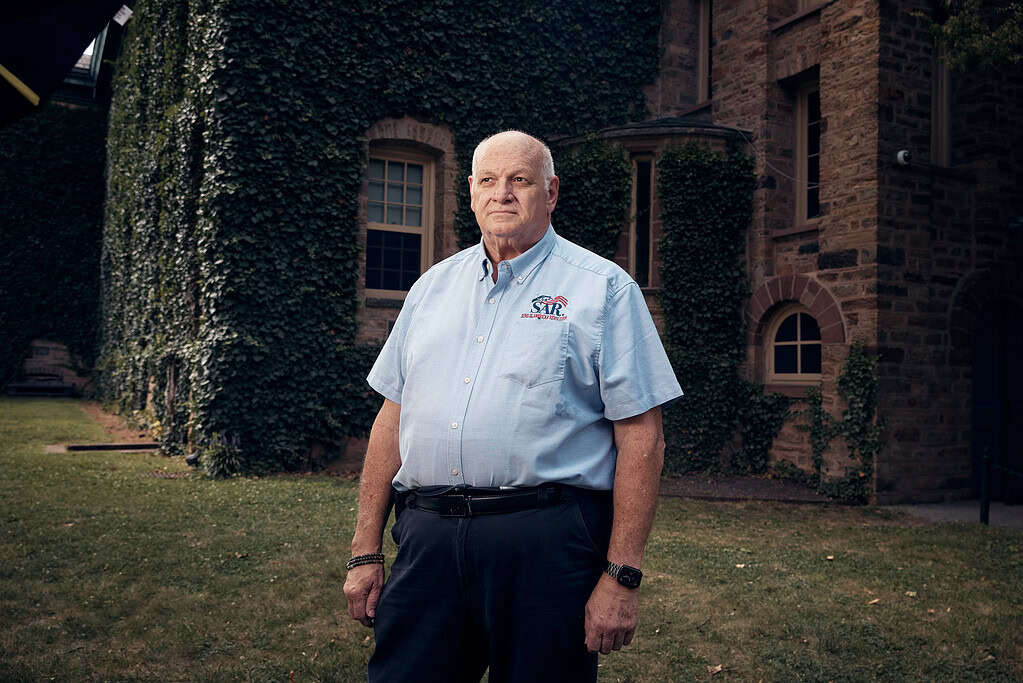
Roger S. Williams, the 70-year-old state historian for the New Jersey chapter of the Sons of the American Revolution, has been living and breathing American history since he was a boy, when he would walk the bucolic meadows of Princeton Battlefield with his dad, a professor of environmental law and urban planning at Rutgers University. Williams, a Princeton native who now lives in Lawrence Township, recently retired from the book publishing industry and now pursues his passion for history through the Sons of the American Revolution as a public historian. He also co-founded a nonprofit called Ten Crucial Days, which focuses on the Continental Army’s week-and-a-half-long campaign to save the Revolution during the winter of 1776.
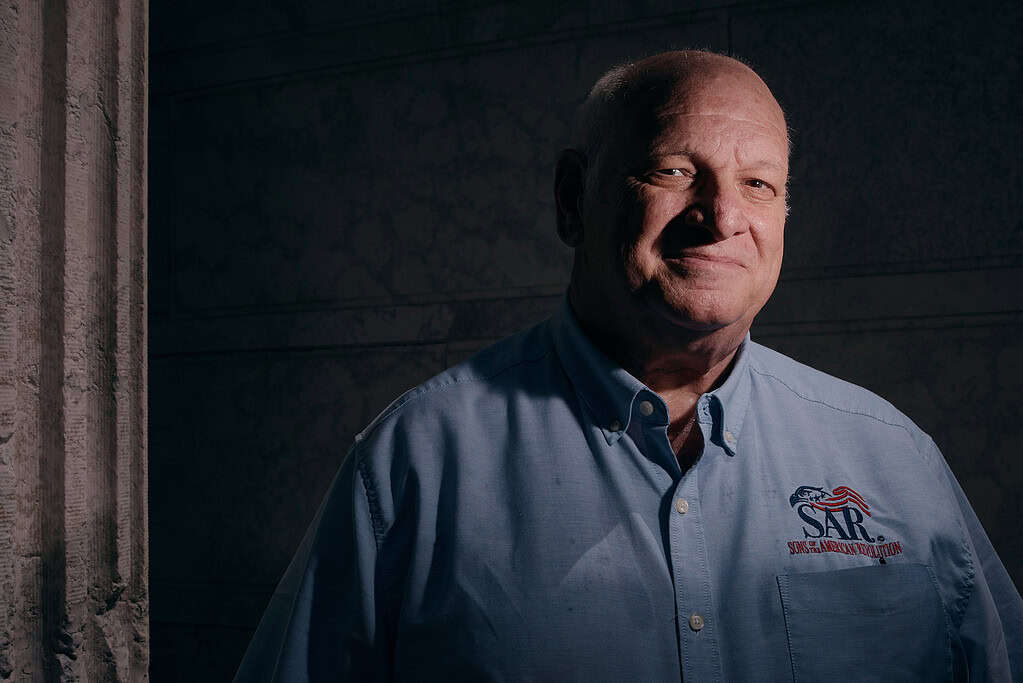
Q: You once said you and your father walked the Princeton Battlefield often when you were a kid. Is that where your love of history came from?
A: I think it was our parents, for sure. Pretty much everyone in our family always had history all around. Dad studied history at Cambridge, my brother is a high school history teacher, my older sister is a law professor and a member of the Organization of American Historians, and my kid sister is an architectural historian. Our father, Norman Williams, who died in 1996, took us all over the world, and we would visit historic sites. Our father also read a lot of history to us, and our ancestors had a lot to do with the growth of the nation.
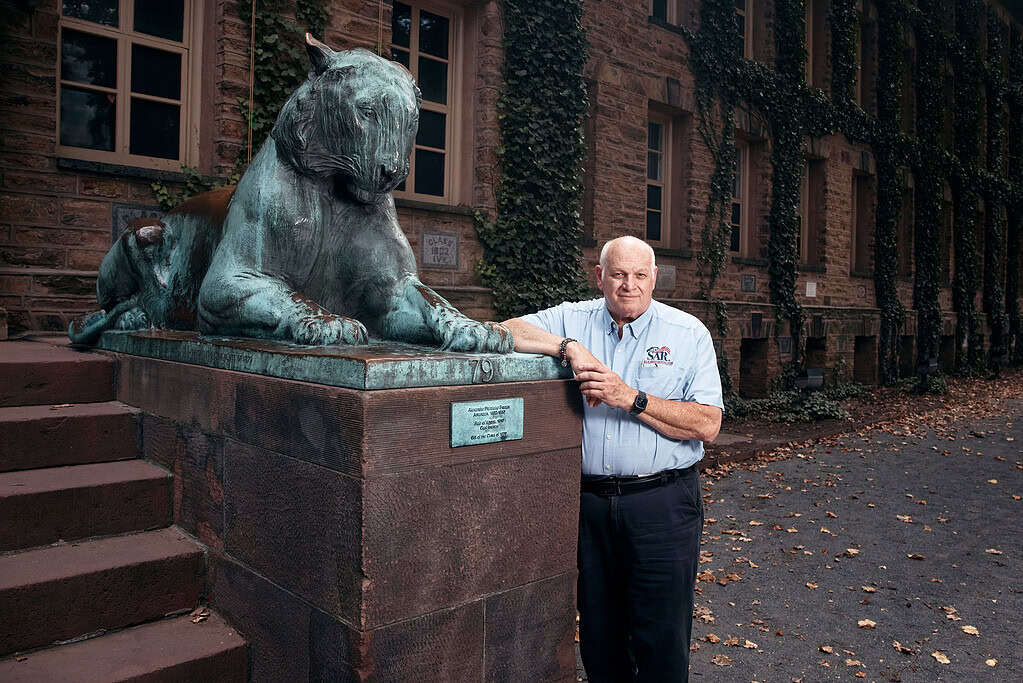
Q: What about the American Revolution grabbed your attention?
A: I started with recent history and just kept going backward. I was like, “How did World War II start? Oh, OK. Well then, how did World War I start?” I just kept going backward to find out why all this happened. And the fact that I live in New Jersey — you can’t sneeze in New Jersey without hitting some Revolutionary War site. There were more battles and skirmishes fought here than anywhere else, but people don’t realize it. There are Revolutionary War sites off every exit of the Garden State Parkway and New Jersey Turnpike, because it was in New Jersey that the bulk of the fighting took place.
Q: Why doesn’t New Jersey get the credit it deserves for being the literal crossroads of that conflict?
A: Because it’s everywhere. States like Massachusetts and Pennsylvania have very specific places: Massachusetts has Boston, where they started the ruckus. Pennsylvania has Philadelphia, where they did the paperwork. But it was New Jersey that launched the nation. And our Revolutionary War heritage is all over — it’s the entire state. But we, as a state, have fumbled that as a heritage tourism icon. It’s a shame we’ve never really leveraged that to bring people to New Jersey. Because it was the time the Continental troops spent in New Jersey that finally convinced the British they would never win this war. The British held the ports, but could never hold the farmland or the interior.
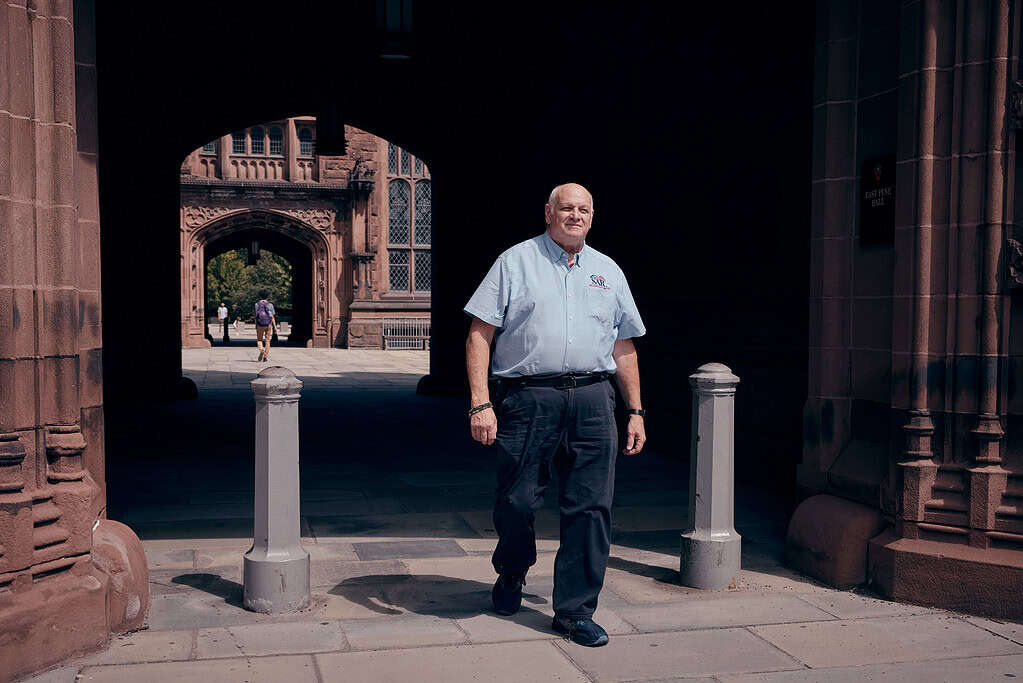
Q: How do we change that to make people understand how critical New Jersey was?
A: We have an asset that could really grow our businesses, increase our real estate values, all sorts of things. But I’ve always been very frustrated that the state Division of Travel and Tourism has spent the bulk of its tourism dollars on four counties for one season — the Jersey Shore in the summer. In the other counties, it’s crickets. The counties are trying to promote themselves, and some do a great job. Others don’t. But there’s no coordination. Now, with the war’s 250th anniversary next year, we have an opportunity. And kudos to the state Department of Environmental Protection for stepping up and polishing Monmouth and Princeton Battlefields and Washington’s Crossing, which gives heritage tourists someplace to go. But we need to promote it. This is not like the baseball field in the movie — you can’t just build it and hope they will come.
Q: Why should people care about the American Revolution when most would probably say, “This isn’t relevant to my daily life?”
A: I hear that often from people who are interested in history. They say exactly what you just said, nobody pays attention to history. This is an area that isn’t tested in school, and as a result, the resources do not go to civics and history. It’s our responsibility as citizens — particularly as citizens of New Jersey — to support our many historic sites in the state. Every community has a historical society; every community has volunteers dedicated to revealing the history of the community. That’s what we need to support.
Q: Who fought in the Revolution from your family?
A: My fifth great-grandfather, Jesse Williams, was a supply wagon driver at Bunker Hill, then joined the militia, became one of Herrick’s Rangers in the Green Mountain Boys, and fought at the Battle of Hubbardton. Then he spent the rest of the war driving supplies through the Champlain and Hudson valleys.
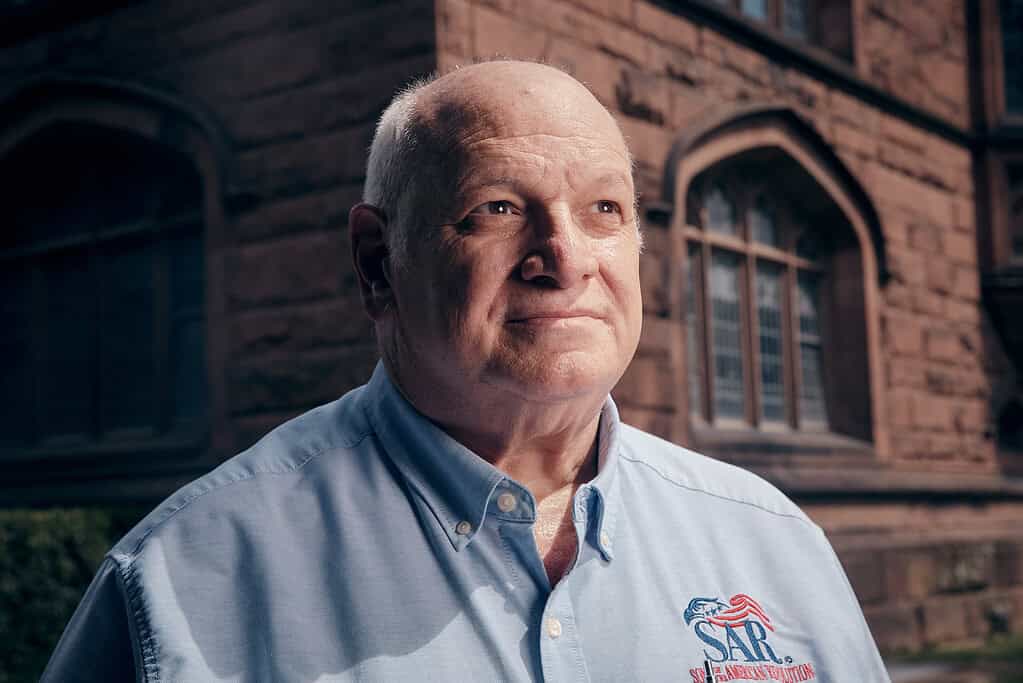
Q: What would he think about what you are doing now?
A: I think he would be absolutely beaming with pride, but so confused. Because the system of government our Founding Fathers gave us has been so bastardized and so twisted. They would be shaking their heads, saying, “No, no, no, not like that! That’s not what we meant!”
Q: How do we get back to what they intended?
A: Given our 21st-century sensibilities, we look back now and could say the founders were hypocrites. But what our founders were doing was transformative. They were providing future generations with self-determination; collectively, citizens should decide what was for the common good. They were laying down a system of government that, if managed properly, would be equitable. While many of them owned slaves — that was the hypocrisy — they created a new world based on the ideals of the Age of Enlightenment, which very simply meant that no one person, because of their heredity, should be in control of the community. We are collectively responsible for our homes, our desires, and our system of government. That’s pretty heady stuff. But said very simply, our Founding Fathers gave us a system of government that should be equitable. That’s the message.
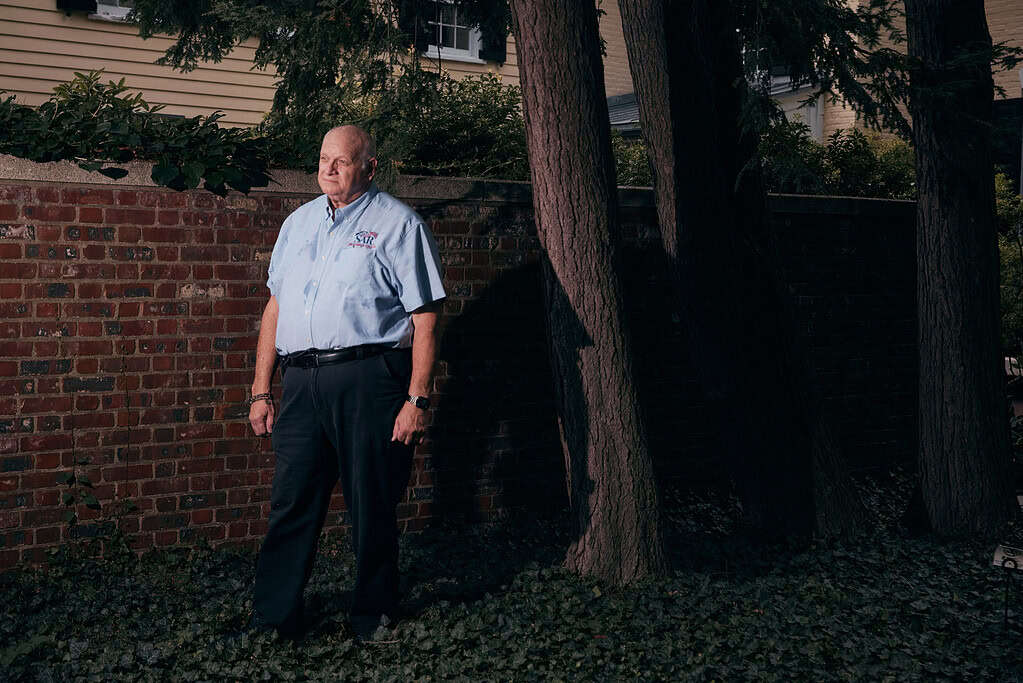
Steve Janoski is a multi-award-winning journalist whose work has appeared in the New York Post, USA Today, the Associated Press, The Bergen Record and the Asbury Park Press. His reporting has exposed corruption, government malfeasance and police misconduct



